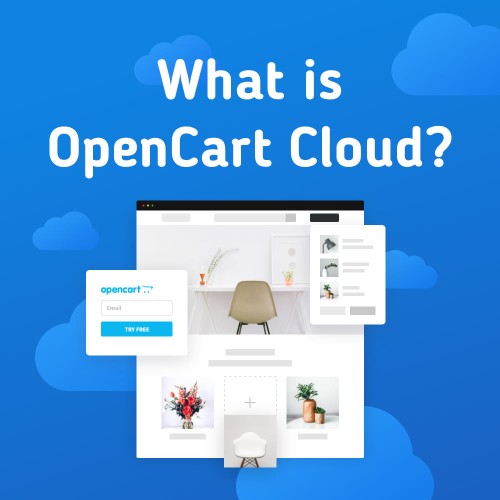The rise of open-source ecommerce platforms has been a major trend in recent years. These platforms, which allow businesses to build and customize their own online stores, are increasingly popular due to their flexibility, cost-effectiveness, and other benefits.
This trend is significant for businesses and consumers alike, as it is changing the way we buy and sell goods online. In this article, we will explore what open-source ecommerce platforms means, and the reasons behind their growing popularity.
By the end of the article, you can expect to have a better understanding of why open-source ecommerce inventory management software are becoming the go-to choice for many businesses. Let's begin with what open-source ecommerce platforms are.
Definition of Open-Source Ecommerce Platforms
Open-source ecommerce platforms are software applications that are freely available for anyone to use, modify, and distribute. These platforms are typically built on open-source technologies such as PHP, MySQL, and JavaScript, and they provide a flexible and customizable solution for businesses looking to create an online store.
Open-source ecommerce platforms offer a range of features and functionality, including product catalog management, order processing, payment and shipping integrations, and marketing and analytics tools. They can also be extended with third-party plugins and themes, allowing businesses to add additional functionality and customize the look and feel of their store.
Why Open-Source Ecommerce Platforms Are Growing in Popularity
The growth of open-source ecommerce platforms has been driven by a combination of factors, from their cost-effectiveness and customizability to their flexibility and scalability. As businesses look for ways to stay competitive in an increasingly crowded ecommerce landscape, open-source platforms have emerged as a powerful and attractive solution. In this section, we'll explore each of these factors in more detail and consider how businesses can leverage them to achieve success online.
Cost effectiveness
One of the primary reasons why open-source ecommerce platforms are growing in popularity is their cost-effectiveness. Traditional ecommerce platforms often require significant investment in licensing fees, installation, and customization costs. This can be a major barrier for small and medium-sized businesses that are just starting out in ecommerce.
Open-source ecommerce platforms offer a cost-effective alternative to proprietary platforms. Since the software is free to use, businesses can save money on licensing fees and other expenses associated with proprietary ecommerce platforms. This can be particularly beneficial for startups or small businesses with limited budgets.
Another advantage of open-source ecommerce platforms is that they allow businesses to invest in other areas of their business, such as marketing and customer acquisition. With more resources available, instead of using the majority of their budget on hosting an online store, businesses can allocate more budget towards promoting their products and driving traffic to their online store, which ultimately lead to increased sales and revenue.
It's worth noting that while open-source ecommerce platforms are generally less expensive than proprietary platforms, there may still be costs associated with using and customizing the software. For example, businesses may need to hire a developer or agency to help them set up and customize the platform to meet their specific needs. However, even with these additional costs, open-source ecommerce platforms can still be a more cost-effective solution than proprietary platforms.
Customization
Customization refers to the ability to modify or adapt an existing software platform to suit the specific needs of a business. This customization can range from simple changes to the layout or design of a website to more complex modifications that involve altering the functionality of the software.
Open-source e-commerce platforms are becoming increasingly popular because they allow businesses to customize their e-commerce platforms in ways that were previously not possible. Unlike proprietary e-commerce platforms, which limit the ability of users to modify or adapt the software, open-source platforms provide full access to the source code, allowing users to make any changes they need.
This level of customization is particularly valuable for businesses that have unique requirements for their e-commerce platform. For example, a business may need to integrate with a particular payment gateway, or they may need to customize the checkout process to meet the needs of their customers. With an open-source platform, these changes can be made quickly and easily, without the need to wait for a software vendor to make the changes for them.
In summary, customization is a key factor driving the popularity of open-source e-commerce platforms. By providing businesses with the ability to modify and adapt the software to suit their specific needs, these platforms offer a level of flexibility and control that is unmatched by proprietary platforms. This, combined with the ability to leverage the knowledge and expertise of the wider developer community, makes open-source e-commerce platforms a compelling choice for businesses of all sizes.
Flexibility
In the context of e-commerce, flexibility refers to the ability of businesses to adapt and evolve their e-commerce platforms to meet their changing needs and the evolving needs of their customers. Open-source platforms offer a level of flexibility that is unmatched by proprietary e-commerce platforms, and this is a significant factor in their growing popularity.
This level of flexibility allows businesses to adapt their platforms to suit their unique requirements, rather than being limited by the constraints of off-the-shelf solutions. Another advantage of open-source e-commerce platforms is the ability to scale and grow as the business expands. As the business grows and evolves, its e-commerce platform needs to adapt and scale to meet the increasing demand.
Open-source platforms provide the flexibility to add new features and functionality as needed, without the need to completely overhaul the platform or invest in costly custom development work. They also provide businesses with the flexibility to choose the hosting provider and infrastructure that best suits their needs.
With proprietary e-commerce platforms, businesses are often locked into using the hosting provider and infrastructure provided by the software vendor. This can be limiting, as it may not be possible to optimize the platform for performance or to choose a provider that meets the business's specific needs.
Community-driven development
Community-driven development is another crucial factor that is driving the growing popularity of open-source e-commerce platforms. It refers to the practice of allowing developers and users from around the world to contribute to the development of the software. This approach fosters collaboration, innovation, and improvement, and is a significant factor in the success of open-source e-commerce platforms.
Open-source commerce platforms gives the ability to leverage the knowledge and expertise of a wide range of developers and users. Because the code is open and available to anyone, developers from around the world can contribute to the platform, adding new features, fixing bugs, and improving the overall quality of the software. This means that the platform is constantly evolving and improving, without the need for businesses to invest heavily in custom development work.
In addition, it gives online businesses the ability to respond quickly to changing market needs and trends. Because the development process is collaborative and open, changes and improvements can be made quickly and efficiently, allowing the platform to stay ahead of the competition and respond to the evolving needs of businesses and customers.
Community-driven development also fosters a sense of ownership and investment in the platform among its users. Because users can contribute to the development process, they feel a sense of ownership over the software and are more likely to invest in its success. This can lead to a vibrant and active user community that is committed to improving the platform and helping other users.
Scalability
Scalability refers to the ability of a platform to handle increasing traffic, transactions, and users without compromising performance or reliability. Open-source platforms offer a level of scalability that is unmatched by proprietary e-commerce platforms, and this is a significant factor in their growing popularity.
Among many advantages, open-source e-commerce platforms give users the ability to scale and grow as the business expands. As the business grows and evolves, its e-commerce platform needs to adapt and scale to meet the increasing demand. Open-source platforms provide the flexibility to add new features and functionality as needed, without the need to completely overhaul the platform or invest in costly custom development work.
It involves the ability to scale horizontally by adding additional servers, databases, and other resources allowing the platform to handle increasing traffic and transactions by distributing the workload across multiple servers, rather than relying on a single server. Open-source platforms also provide businesses with the ability to optimize performance by fine-tuning the platform's infrastructure, database, and caching settings.
Open-source platforms also offer the ability to scale vertically by upgrading server hardware, memory, and processing power. This approach allows the platform to handle increasing demand by providing more resources to support the growing user base.
Scalability is key in driving the popularity of open-source e-commerce platforms. The ability to add new features and functionality, scale horizontally and vertically, and optimize performance provides businesses with a level of scalability that is unmatched by proprietary platforms.
Security
A critical factor driving the growing popularity of open-source e-commerce platforms is security. Security refers to the ability of the platform to protect sensitive information such as customer data, payment information, and order details from unauthorized access or theft. Open-source platforms offer a high level of security that is essential for e-commerce businesses that want to protect their customers' data and prevent data breaches.
Market trends reveal that open-source e-commerce platforms are transparent and open for developers and security experts from around the world to review and identify vulnerabilities or potential security risks. This approach allows for continuous improvement and testing of the software, ensuring that the platform is secure and reliable.
They also provide businesses with the ability to customize and tailor the security settings to their specific needs. This includes features such as SSL encryption, two-factor authentication, and firewalls, which are essential for protecting customer data and preventing unauthorized access. Businesses can also integrate third-party security tools and services to further enhance the security of their e-commerce platform.
Also, open-source platforms have the ability to receive regular security updates and patches. The open-source community is constantly monitoring the software and identifying potential security risks or vulnerabilities. This means that updates and patches are released quickly and efficiently, allowing businesses to stay ahead of potential security threats and maintain a secure e-commerce platform.
Finally, open-source platforms offer a level of transparency and accountability that is essential for building trust with customers. By using an open-source platform, businesses can demonstrate that they are committed to protecting their customers' data and are transparent about their security practices. This can help to build trust and loyalty with customers, and can ultimately lead to increased sales and revenue.
Transform your Online Business with Open-source Ecommerce Platforms
Open-source e-commerce platforms are becoming increasingly popular due to their flexibility, scalability, security, customization, and community-driven development. They offer businesses the ability to adapt and grow as the business evolves and can handle increasing traffic, transactions, and users without compromising performance or reliability. The open-source nature of the software also allows for customization and the ability to tailor the platform to specific business needs.
Additionally, the community-driven development of open-source platforms means that developers and security experts from around the world are continuously testing and improving the software, ensuring that it is secure and reliable. By transforming their online business with open-source e-commerce inventory management software, businesses can build trust these platforms with their customers, increase sales and revenue, and stay ahead of the competition in an ever-evolving e-commerce landscape.




Login and write down your comment.
Login my OpenCart Account